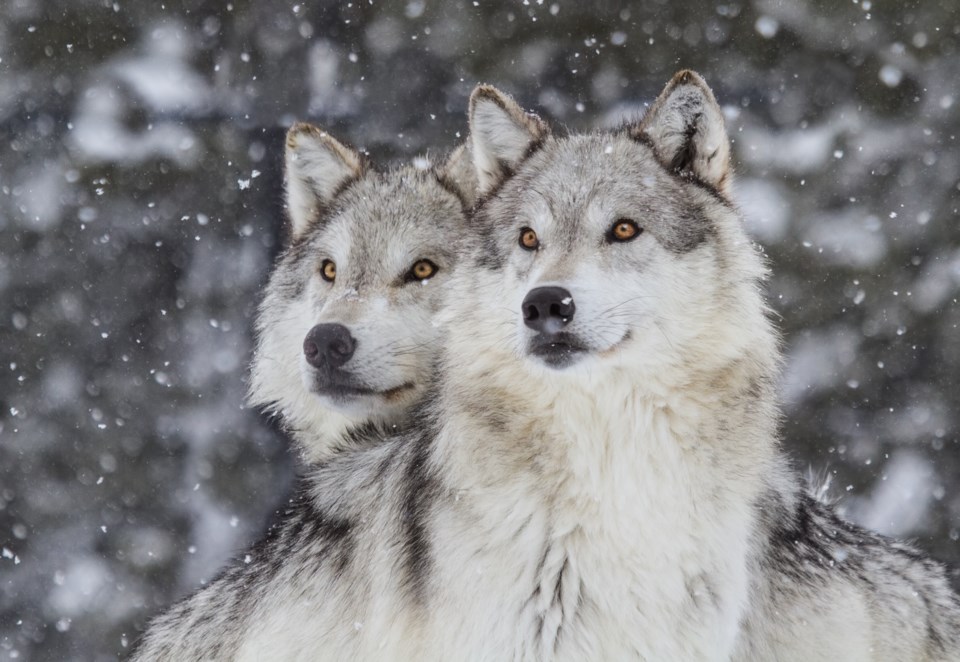A group of Oregon wolves could be moving south this winter to take up residency in Colorado.
The Oregon Department of Fish and Wildlife (ODFW) has agreed to give Colorado up to 10 gray wolves as part of a program to reestablish the species in the state.
Colorado Parks and Wildlife (CPW) announced earlier this month it has reached a one-year agreement with Oregon to relocate the wolves.
CPW will begin trapping and transporting the wolves in December—though officials aren’t sure how many they’ll be able to catch, or how long it will take to trap them.
“CPW plans to capture wolves through March of 2024, if necessary, to acquire 10 wolves,” CPW spokesperson Travis Duncan told Columbia Insight in an email. “That does not mean we will secure all 10 at first release or even this year.”
The wolves will be trapped in northeast Oregon and will make a more than 1,000-mile journey to Colorado’s western slope.
It’s a trip that the animals wouldn’t make on their own.
Gray wolves historically lived across most of North America, and can thrive in a wide range of climates. But individual wolves typically don’t travel more than a hundred miles from their birthplace.
“It would be extremely unusual and unlikely for a wolf to traverse the distance between Oregon and Colorado,” Duncan said, but added that wolves are “habitat generalists,” meaning they can adapt to a wide range of climates.
And there’s no guarantee the wolves will stay in Colorado’s western slope.
“Regardless of release location, wolves will move to where they find sufficient habitat and prey,” he said. “As long as prey is available, wolves can use a variety of areas.”
Oregon gives and takes
In 2020, Colorado voters approved the program to relocate up to 15 wolves to the state, but CPW has had difficulties in sourcing wolves.
“Officials in states including Wyoming, Montana and Idaho—where ranching and hunting interests have fueled a conservative backlash to wolf reintroduction programs begun in the 1990s—have pointedly declined to assist Colorado’s efforts,” according to Colorado NewsLine.
Duncan said CPW is pursuing agreements with other states and tribes to source more wolves. Washington, which has had success with its wolf recovery program, may offer some of its stock to Colorado.
A Washington Department of Fish Wildlife spokesperson told Columbia Insight the state’s wildlife commission is currently considering participating in the program but hasn’t made a decision yet.
It’s not uncommon for states to share species stock with one another in conservation programs, and it’s not the first time Oregon is involved in such a program.
“Oregon has a long history of helping other states meet their conservation goals by providing animals for translocation efforts,” said Oregon Department of Fish and Wildlife Director Curt Melcher in a press release. “Some of our wildlife populations were also restored thanks to other states doing the same for us, including Rocky Mountain elk, bighorn sheep and Rocky Mountain goat.”
The relocation isn’t expected to impact Oregon’s own wolf recovery goals.
Kendra Chamberlain is a freelance journalist based in Eugene, Oregon, covering environment, energy and climate change. Her work has appeared in DeSmog Blog, High Country News, InvestigateWest and Ensia.



